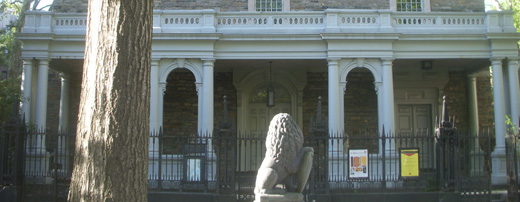Daily Office: Thursday
Thursday, May 13th, 2010
¶ Matins: From the introduction to Ian Buruma’s new book, Taming the Gods: Religion and Democracy on Three Continents, a long view that’s a call for calm. (Princeton University Press; via 3 Quarks Daily)
¶ Lauds: Nige writes about a show at the National Gallery (London) that’s the very best sort of treat: “compact, illuniating about an artist I barely knew, and full of remarkable paintings.” In this case, the painter is Christen Købke of Denmark (1810-1848). (Nigeness)
¶ Prime: In “Small Businesses Get a Little More Optimistic,” David Indiviglio checks out “the engine of the US economy” — responsible for 70% of American job creation.
¶ Tierce: Out of more than 12,000 medical articles on the subject of food allergies, published between 1988 and 2009, only 72 satisfied the rigorous criteria devised by a federally commissioned study. As a result, it’s likely that only about 8% of adults (and 5% of children) who are thought to have food allergies actually do. The authors of the study especially want to restore the difference between a food intolerance (which can lead to discomfort but not much more) and a genuine allergy. (NYT)
¶ Sext: At The Bygone Bureau, Alice Stanley reports on Zynga addiction in the heartland, and finds that it’s contagious. She caught it from her boss, the manager of a college pub who plays Café World. Â
¶ Nones: Here’s a deal to keep your eyes on: Charlapally Central Jail, outside Hyderabad, has been chosen for a pilot project in which prisoners will do back-office work (data entry and such) for outsourced businesses. (BBC News)
¶ Vespers: Laura Miller ventures an essay on the uses and pleasures of bad writing. (Salon; via 3 Quarks Daily)
¶ Compline: The artistic vandal known as Poster Boy (Henry Matyjewics) has been sentenced to eleven months in jail, pretty much for just plain screwing up. Not for defacing subway advertisements! (WSJ; via Felix Salmon)



















